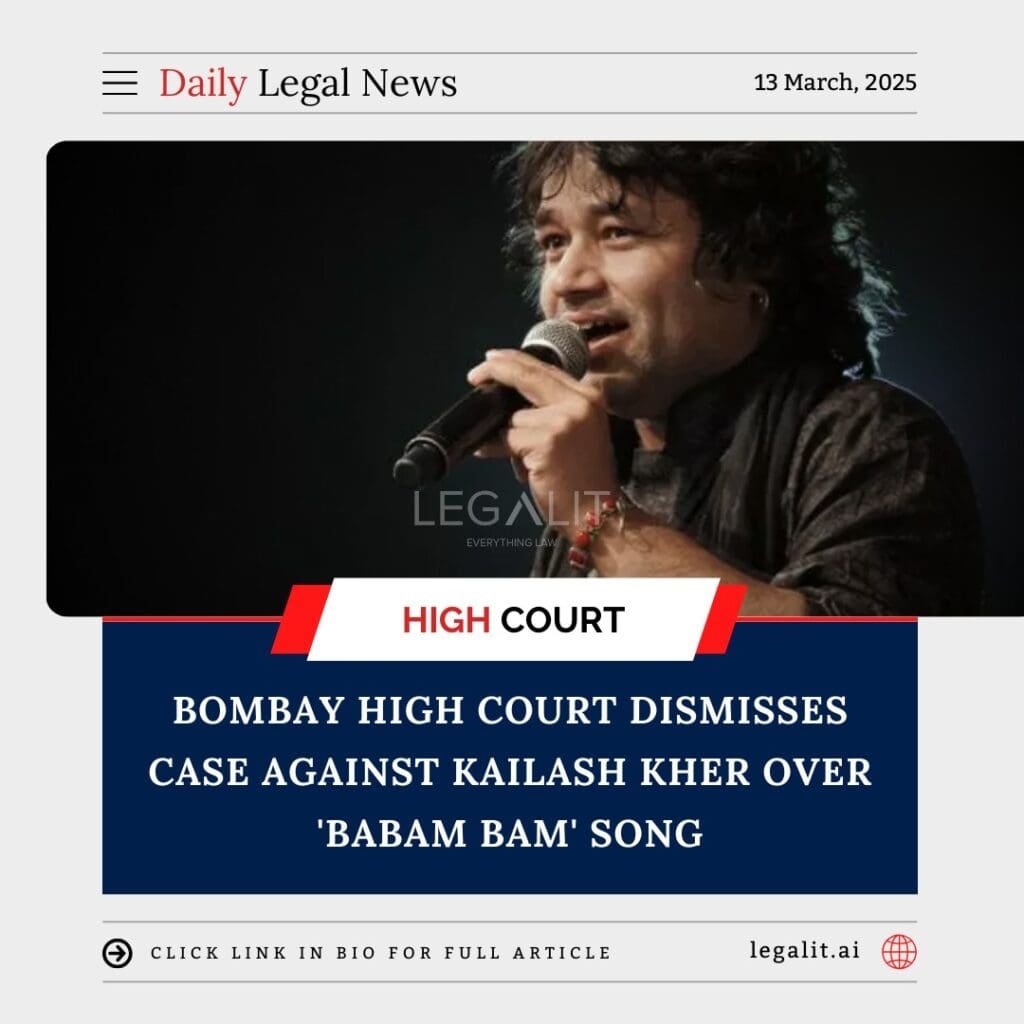
Background
The Bombay High Court has quashed the criminal case filed against renowned singer Kailash Kher over his song Babam Bam. The case was initiated following allegations that the lyrics of the song were offensive to religious sentiments. The complaint, filed by certain groups, accused Kher of disrespecting religious beliefs and hurting sentiments through the use of certain words and phrases in the song.
The petitioner contended that the song, released as part of a devotional music album, was never intended to cause offense. He argued that artistic expression should be safeguarded under Article 19(1)(a) of the Indian Constitution, which guarantees freedom of speech and expression. Kher also pointed out that the song was meant as a tribute to Lord Shiva and had no malicious intent.
Court’s Rationale
In dismissing the case, the Bombay High Court highlighted several crucial aspects:
- Freedom of Speech and Artistic Expression
- The court reaffirmed that creative and artistic works are protected under the fundamental right to freedom of speech and expression.
- It observed that unless a song or artistic work is explicitly malicious or incites violence, it cannot be criminalized merely because some individuals find it objectionable.
- Lack of Intent to Hurt Religious Sentiments
- The court emphasized that intent plays a crucial role in cases involving allegations of religious insult.
- It ruled that the lyrics of Babam Bam did not demonstrate any deliberate attempt to offend religious beliefs.
- Judicial Precedents on Artistic Freedom
- The bench cited past judgments where courts have protected creative expressions unless they incited hatred or directly violated the law.
- It referenced cases where artistic works, even if controversial, were upheld as part of cultural and religious expression.
- Misuse of Legal Provisions
- The court cautioned against the increasing trend of filing frivolous complaints under Sections 295A (deliberate and malicious acts intended to outrage religious feelings) and 153A (promoting enmity between different groups) of the Indian Penal Code.
- It noted that criminalizing artistic works on vague grounds could set a dangerous precedent, stifling creative freedom.
Existing Measures and Legal Safeguards
The Supreme Court of India has consistently held that restrictions on free speech must be reasonable and proportionate. In this context, the Bombay High Court stressed that artists must be given the liberty to create without fear of unwarranted legal action. Additionally, courts have encouraged complainants to seek alternative dispute resolution mechanisms instead of resorting to criminal prosecution for artistic works.
Implications of the Judgment
The Bombay High Court’s decision has far-reaching implications:
- For Artistic Freedom – The ruling strengthens legal protection for musicians, filmmakers, and artists against arbitrary criminal cases.
- For Law Enforcement – It serves as a directive that criminal law should not be misused to target creative professionals without strong legal grounds.
- For Religious Sensitivities – The judgment balances the protection of religious sentiments with the importance of artistic and cultural expression.
- For Future Cases – This case sets a precedent for courts to scrutinize allegations of religious offense carefully before permitting prosecution.
Conclusion
The Bombay High Court’s decision to quash the case against Kailash Kher reaffirms the judiciary’s commitment to upholding artistic freedom while preventing the misuse of legal provisions. The ruling not only provides relief to Kher but also reinforces the principle that creative expression should not be subjected to legal harassment in the absence of clear and deliberate intent to cause harm.